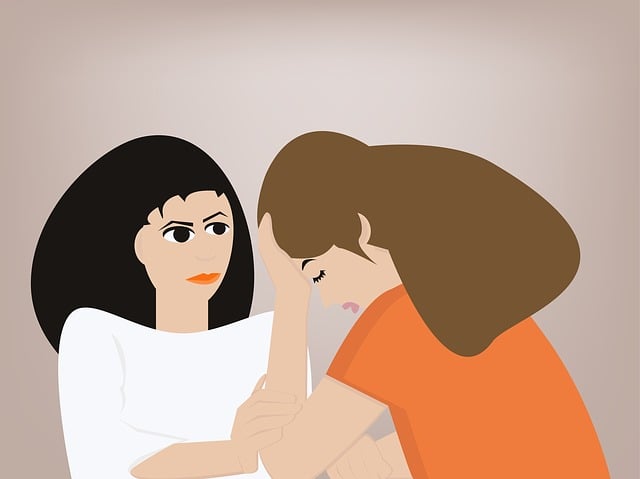Civil commitment under mental health law balances public safety and individual rights by focusing on treatment rather than punishment for severely ill individuals. Unfair practices, including systemic biases against marginalized communities, perpetuate disparities. Advocating for reform with stricter guidelines, legal representation, and clear release criteria is vital to protect human rights and ensure a just system aligned with mental health law principles. Empowering clients through education and tailored strategies enhances autonomy and challenges abuses in civil commitment cases.
In the realm of mental health care, civil commitment plays a pivotal role in ensuring safety and treatment. However, unfair practices within these cases can lead to violations of individuals’ basic human rights. This article delves into the intricate aspects of civil commitment from a mental health law perspective, uncovering patterns of injustice. We advocate for necessary reforms to protect vulnerable populations, emphasizing strategies for effective advocacy and empowering those involved in these complex proceedings. Understanding mental health law is crucial to navigating these cases fairly.
- Understanding Civil Commitment: A Mental Health Law Perspective
- Unfair Practices in Commitment Cases: Recognizing Patterns
- Advocating for Reform: Ensuring Basic Human Rights
- Empowering Individuals: Strategies for Effective Advocacy
Understanding Civil Commitment: A Mental Health Law Perspective

Civil commitment, a cornerstone of mental health law, involves the legal restraint of individuals deemed a danger to themselves or others due to severe mental illness. This process, while designed to protect both the individual and society, must be approached with sensitivity and fairness. In the realm of mental health law, it’s crucial to understand that civil commitment is not merely a form of punishment but a temporary measure aimed at providing treatment and support.
Fair treatment in these cases requires balanced consideration of an individual’s rights while ensuring public safety. Mental health professionals play a pivotal role by conducting comprehensive assessments and recommending appropriate levels of care. Court proceedings should be transparent, with clear evidence justifying the commitment, allowing individuals to defend their rights and access due process. This approach aligns with the principles of mental health law, emphasizing treatment, recovery, and the dignity of those facing severe mental illness.
Unfair Practices in Commitment Cases: Recognizing Patterns

Unfair practices in civil commitment cases often go unnoticed, but they can have severe consequences for individuals with mental health issues. Recognizing patterns is crucial to addressing these disparities under mental health law. Many times, marginalized communities—including racial and ethnic minorities, LGBTQ+ individuals, and those from lower socioeconomic backgrounds—face systemic biases that impact their treatment within the civil commitment process. These biases may manifest as biased evaluations, inadequate legal representation, or discriminatory practices by healthcare professionals.
For instance, cultural competency deficiencies among mental health professionals can lead to misdiagnoses or inappropriate treatment recommendations. Similarly, limited access to quality legal counsel can result in individuals not understanding their rights or being unable to challenge evidence used against them. These issues create a cycle of unfairness, exacerbating existing mental health disparities. By identifying and documenting these patterns, advocates can push for policy changes that ensure fairer treatment under mental health law.
Advocating for Reform: Ensuring Basic Human Rights

Advocating for reform in civil commitment practices is paramount to ensuring basic human rights, particularly for individuals facing mental health challenges. The current system often fails to provide adequate protections and support for those caught in its web. Many times, the rights of mentally ill individuals are overlooked or violated during the commitment process, leading to prolonged detention without proper treatment or legal representation.
Reforms should focus on implementing stricter guidelines and oversight to prevent arbitrary commitments. This includes guaranteeing access to legal counsel, ensuring a thorough evaluation of an individual’s mental state, and establishing clear criteria for release. By upholding these rights, we can create a more just system that respects the dignity and autonomy of those struggling with mental health issues, in accordance with principles laid out in relevant mental health laws.
Empowering Individuals: Strategies for Effective Advocacy

Empowering individuals with mental health conditions through effective advocacy is a cornerstone in achieving fair treatment within civil commitment cases. This involves utilizing strategies that ensure their voices are heard and rights protected under mental health law. One key approach is building strong alliances between clients, advocates, and legal professionals. By fostering an environment of collaboration, these stakeholders can develop tailored strategies that address the unique needs of each individual.
Additionally, education plays a pivotal role in empowering individuals. Teaching them about their rights, the commitment process, and available resources equips them to actively participate in their care. This knowledge enables them to make informed decisions, challenge potential abuses, and navigate the complexities of the legal system. Advocates should also encourage clients to express their preferences, concerns, and aspirations, ensuring their autonomy and personal agency throughout the civil commitment process.














